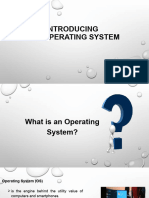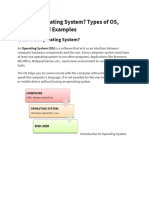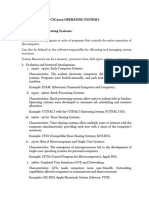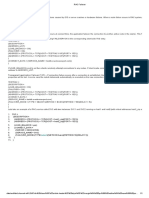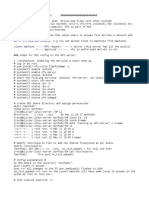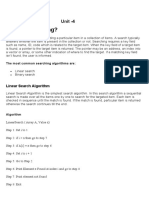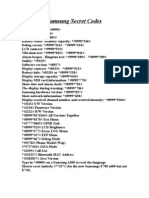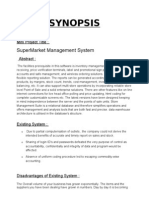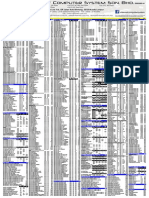0% found this document useful (0 votes)
78 views22 pagesIntroduction To Operating System
Introduction to Operating System
Uploaded by
abendanjhanineCopyright
© © All Rights Reserved
We take content rights seriously. If you suspect this is your content, claim it here.
Available Formats
Download as PPTX, PDF, TXT or read online on Scribd
0% found this document useful (0 votes)
78 views22 pagesIntroduction To Operating System
Introduction to Operating System
Uploaded by
abendanjhanineCopyright
© © All Rights Reserved
We take content rights seriously. If you suspect this is your content, claim it here.
Available Formats
Download as PPTX, PDF, TXT or read online on Scribd
/ 22






















